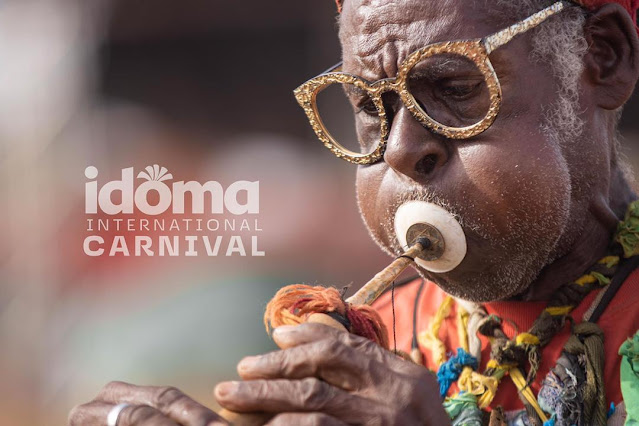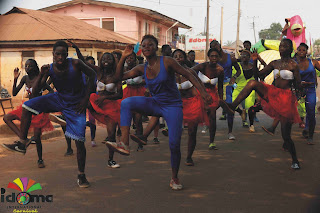The Four Horsemen of the Fulani Apocalypse
By Obadiah Mailafia
IN all probability I have some trace of Fulani blood coursing through my veins. My grandparents, for one thing, had their kind of features. My paternal grandfather Baba Gambo Galadima had what the German poet Wolfgang von Goethe termed an “elective affinity” with all manner of itinerant Fulani tribesmen and clerics who settled in the outskirts of his sprawling compound and on his farmsteads.
Although I am of evangelical Christian parentage, I learned the Holy Koran at the feet of grandfather’s Fulani friend, Mallam Banni, an austere cleric of the Sufi Qadiriyya sect.
For better or worse, mine was a Fulani childhood. As a child, I wasn’t particularly fond of school. I used to deceive my parents that I was going to school, only to sneak into the nearby Fulani ruga where my best friends Lawal and Orie lived with their parents, cattle and sheep. I would join them in taking the cattle out to grazing. Whenever we were thirsty in the searing afternoon heat we would go under the udder of the fattest cow and gobble up fresh milk to our hearts’ content. It is the closest I have been to paradise!
I later moved to a snooty missionary boarding school and from there to university in Zaria. And then Paris, Ottawa, Uppsala and Oxford; pursuing a glittering career in London, Abidjan and Tunis.
Things changed. Lawal’s parents passed on. Orie died. The cattle were diminished in number. But throughout these years Lawal would visit my parents every now and then. Whenever I came on holiday I would bring Lawal gifts. He looked upon the watches, shoes, shirts and money with indifference; reminding me that our life-long friendship was more precious than money and material things. We were family.
Sadly, Lawal died five years ago. For me, the earth had changed.
The Pullo that I grew up with are a proud and honourable race. Their ancestral homelands are the high mountains of Futa Jallon in Upper Guinea. They later spread out to Maasina in Mali and Futa Toro in Senegal. Today, they number some 20 million; the largest single ethnic pastoralists in the world, spread across West and Central Africa. Many have left their ancestral pastoralist-nomadic way of life and have settled in towns and cities.
Their women, if truth be told, are among the most beautiful on earth – a highly romantic people. They live in spare and Spartan conditions, with a code of honour known as pulaaku. It is the essence of being Pullo; a combination of attributes such as honour, self-respect, discipline, loyalty and valour. They neither forgive nor forget. For them, friendship is for life.
I find it strange that this noble race of men and women I have known all my life are now supposed to be our enemies. But make no mistake about it. There is better hatred in the Middle Belt. For the better part of a decade, armed Fulani militias have been on a murderous rampage throughout the wide expanses of our ancient savannah homeland.
They have killed, raped and pillaged unarmed, defenceless peasants in Adamawa, on the Plateau, Southern Kaduna, Taraba, in Nasarawa and the Benue valley. They have gone as far south as Enugu, Calabar, Akwa Ibom, Ondo, Oyo and Ekiti. Armed with sophisticated weapons, they have killed women and children and burnt down entire villages in a kind of blitzkrieg that would have impressed Hitler and the Nazi Bundeswehr — an undeclared, one-sided war against an unarmed and defenceless people.
The recent Benue tragedy is the latest in a long catalogue of genocidal mayhem being perpetrated by these nomadic armed bandits. Apart from the thousands of unacknowledged casualties, there is the humanitarian disaster of internally displaced people, IDPs, land dispossession, the prospect of creeping hunger and destruction of our entire national food system. There is also the erosion of social capital which is the glue that has melded rural communities together in a symbiotic relationship that has existed for centuries. I grew up in a rural village and I know.
Four factors, I believe, are driving this new spirit of violence and war. I call them the “Four Horsemen of the Fulani Apocalypse”.
The first is the reality of Climate Change. Desertification across the Sahel and in the northern part of our country has dried up ancient grazing lands. Rivers are disappearing. Lake Chad, which once extended as far as Kano and Yobe, according to ancient accounts, has shrunk to dangerous levels. The livelihoods of farmers, fishermen and pastoralists are being severely undermined.
Second, the culture of violence which emerged with Boko Haram and wahhabi-salafi global Jihad has given an added impetus to Fulani militias to pursue their political objectives through the barrel of the gun. The fall of Muammar Gadaffi in Libya in October 2011 and the sacking of his armouries has led to the proliferation of cheap weapons throughout West Africa.
Third, our country has become a gravitational vortex for Fulani and other immigrants from our neighbouring countries. The relative prosperity of Nigeria and lush grasslands of the Middle Belt are an obvious “pull” factor. On the “push” side, their original home country of Guinea has become a hostile environment to the Fulanis.
Despite the fact that they make up the majority, with 40 percent of the population, the Malinke, Susu and others have always ganged up against them. No Fulani has ever ruled Guinea. The other ethnic groups are deeply hostile to them, accusing them of being racist, clannish and oppressive. They have now turned to Nigeria as their second home; aided by the fact three ethnic Fulanis – Shehu Shagari, Umaru Yar’Adua and Muhammadu Buhari – have ruled our country. They invoke the history of the Caliphate of Usman Dan Fodio in the belief that Nigeria is their God-given birthright and patrimony.
Finally, I would not rule out international complot. The enemies of our country have been prophesying, ad nauseum, that Nigeria will disintegrate. I have read enough of Western classical diplomacy to know that no rising power is ever treated with kid gloves by those who regard themselves as the masters of the universe.
World powers are doing all they can to ensure that our country will never rise up to its fullest potential. There could be no better way than to use an ubiquitous and highly mobile army such as the Fulanis to penetrate the nooks and crannies of our agrarian countryside. Destroying our food will deepen rural poverty, triggering a cycle of violence that could ultimately destroy our country.
Ultimately, we will have to forge a modus vivendi between farmers and pastoralists. But it will have to be shorn of grandstanding and narrow-minded bigotry. We need a comprehensive settlement that is fair to all; anchored on equity, social justice, confidence building, dis-armament and inter-communal dialogue. We will have to invest more in rural infrastructures. Some sort of rural administration must be put in place to guarantee the presence of governmental authority which has been missing for decades.
I am glad that the federal government has now understood that creating so-called “colonies” without disarming the bandits can only lead to peace of the graveyard.




























